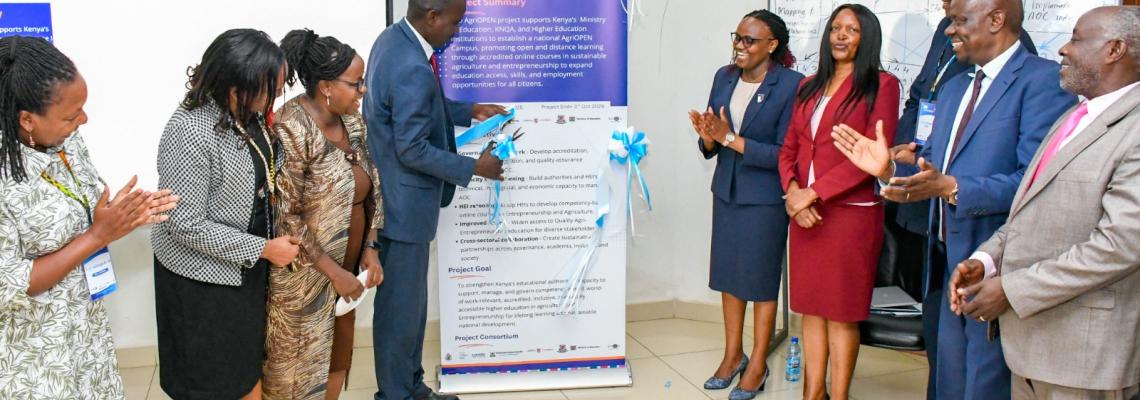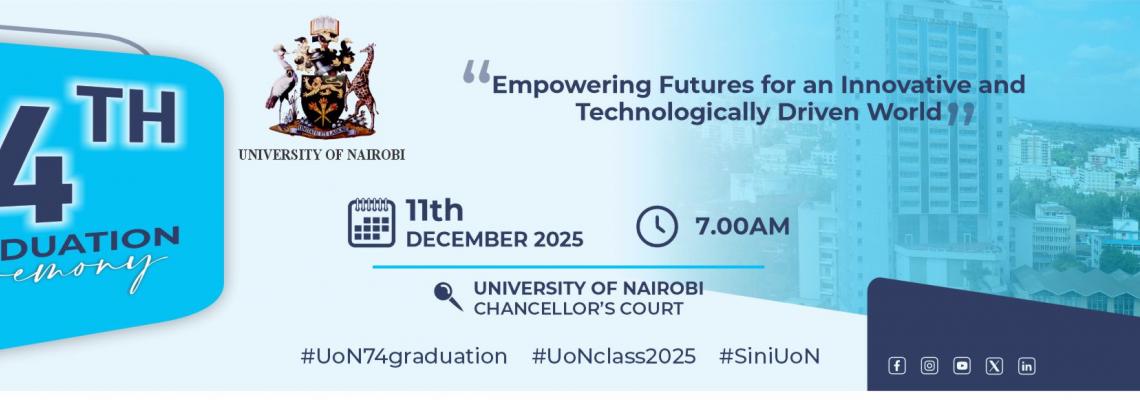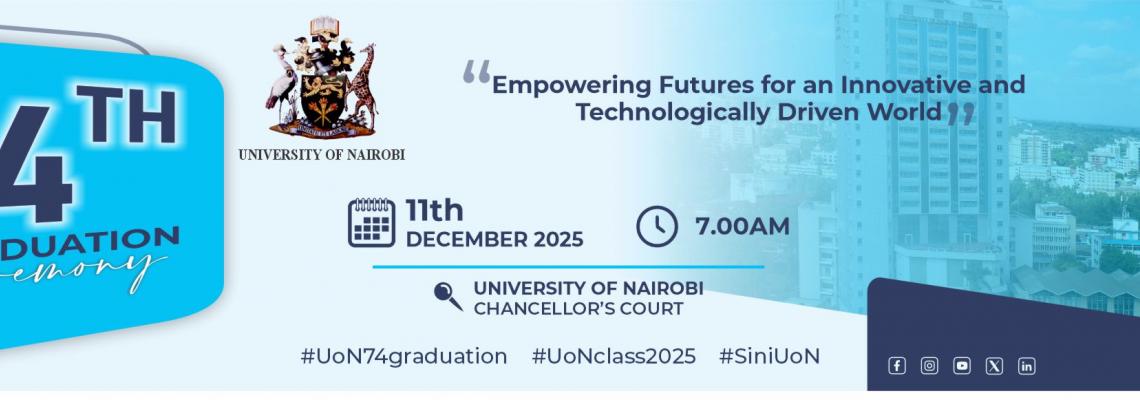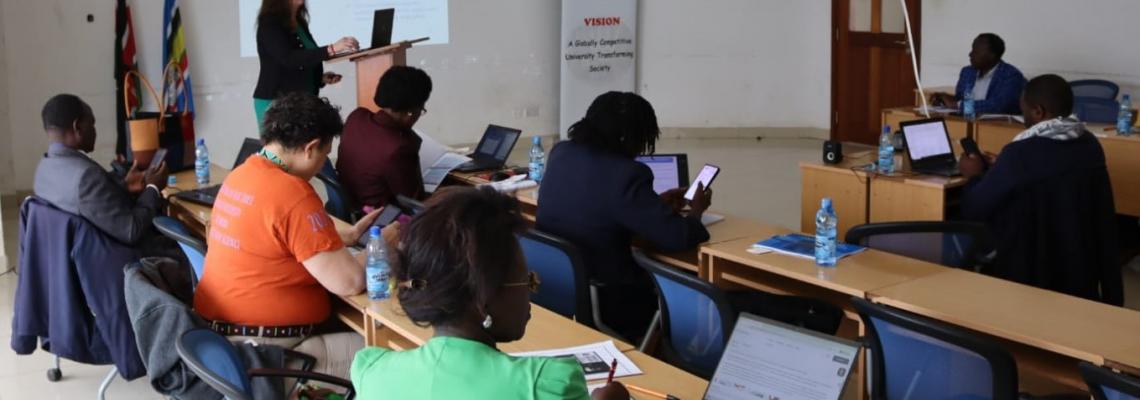Overview
Overview:
- Background
The doctoral specialization in Comparative and International Education is designed to relate a firm grounding in the theories and methods of a basic social or behavioral science to the analysis of education's role in the processes of economic growth, political development, and social change. The training of Comparative and International Education doctoral students is geared toward achieving substantial research competence in areas where a social science discipline and the policy problems of development education intersect. Additionally, the study for the degree of Doctor of Philosophy involves a sustained, rigorous and systematic approach to the relevant body of knowledge, undertaken through experimentation, archival work, or other appropriate means. It includes an original research project that makes a significant contribution to knowledge and understanding or application of knowledge. It requires the preparation of a substantial thesis that presents the outcome of the research and places it in the broader framework of the discipline or field of study. Undertaken under qualified supervision, it promotes intellectual independence and the capacity to undertake further research at an advanced
- Objective
This programme shall enable the learner to:
- Carry out research and write a thesis which is in line with obligations and best practice for PhD study.
- Produce a PhD thesis from which at least two articles of a standard acceptable to a fully refereed journal are published. Research quality is generally judged by publication quality.
- Exposed to Research training which must therefore:
- stimulate them to adopt a disciplinary approach, which includes the ability to formulate questions
- to give structure to a scientific argument
- to find adequate methods and theories for tackling problems
- To be able to reflect critically on the subject of their dissertation.
- To train students to analyze educational problems and issues using the knowledge, concepts, and research methods.
3. Philosophy
Education, and the way students should be educated, is a heavily and political subject. The PhD Programme in Educational Foundations focuses on the analysis of what education really is and what functions it fulfills. Students will acquire the means to make independent and advanced analyses of education as a social phenomenon, shaped by historical, cultural and economic conditions. It will prepare for a career in research or the area of education administration.
Earning a PhD signifies that one is an independent researcher who has made original contributions to area of specialization/field. The key to earning a PhD is to make an original contribution. Becoming an independent researcher doesn’t happen overnight. Doctoral studies are one element in the development of knowledge and may perhaps be summarized in the words 'new knowledge' and 'disciplinary and academic training'. Their aim is to produce capable new researchers, whether they will be working in the higher education system or outside it
4.Rationale
This course introduces the candidates to methodologies of carrying out high quality research in education and hence will be able to make a significant contribution to educational policy and practice in Kenya. The purpose is to train doctoral students in the disciplinary and academic tradition, but above all to develop independent and critically minded researchers. In this regard, Doctoral students must also be able to explain and discuss their research with people who do not have specialist knowledge in their fields.
This is a detailed description about the programme
- The doctoral specialization in Comparative and International Education is designed to relate a firm grounding in the theories and methods of a basic social or behavioral science to the analysis of education's role in the processes of economic growth, political development, and social change. The training of Comparative and International Education doctoral students is geared toward achieving substantial research competence in areas where a social science discipline and the policy problems of development education intersect.
- Study for the degree of Doctor of Philosophy involves a sustained, rigorous and systematic approach to the relevant body of knowledge, undertaken through experimentation, archival work, or other appropriate means. It includes an original research project that makes a significant contribution to knowledge and understanding or application of knowledge. It requires the preparation of a substantial thesis that presents the outcome of the research and places it in the broader framework of the discipline or field of study. Undertaken under qualified supervision, it promotes intellectual independence and the capacity to undertake further research at an advanced level.
Structure
Structure
Conduct research independently at a high level of originality and quality.
MODE OF DELIVERY
-
- PhD candidates who currently enroll in the department of Educational Foundations undertake the PhD course by thesis only.
- Every candidate, before enrolling for the degree, must be approved as a candidate by the Associate Dean – Post Graduate – Faculty of Education.
- A candidate shall apply for enrollment on the PhD Application form. The form, which must be signed by the Head of Department, must nominate potential Senior Supervisors, who will normally be a member of the continuing academic staff of the University of Nairobi, indicate the general field of study, and recommend a date of enrollment.
- Once enrolled, the candidate shall work to develop a research proposal under the guidance of the nominated Senior Supervisor. Within six months of enrollment for the degree, the candidate must submit a PhD Proposal which must be defended in the departmental PhD committee and Faculty of Education committee before forwarding to the Associate Dean – postgraduate – Faculty of Education for approval.
- On completion of the departmental and Faculty defenses, the minutes must be submitted to the Associate Dean – Postgraduate – Faculty of Education recommending that: the candidate’s full enrollment be confirmed; or the candidate’s provisional enrollment can be extended for a specified period of up to 6 months.
Admission Requirements
5. Admission Requirements/Application Information
- The common regulations for professional doctoral degrees of the University of Nairobi and the Faculty of Education shall apply.
- The following shall be eligible for admission into the Professional Doctor of Philosophy degree in Educational Foundations:
- A holder of Master of Education (M. Ed.) in any one of the following areas of Education, History of Education, Sociology of Education, Comparative Education, International Education, Higher Education.
- Every candidate, before enrolling for the degree, must be approved as a candidate by the Director, Graduate Studies, University of Nairobi.
- A candidate shall apply for enrollment on the PhD Application form. The form, which must be signed by the Head of Department, must nominate potential Supervisors, who will normally be a member of the academic staff of the University of Nairobi, indicate the general field of study, and recommend a date of enrollment.
- Once enrolled, the candidate shall work to develop a research proposal under the guidance of the nominated Senior Supervisor. Within six months of enrollment for the degree, the candidate must submit a PhD Proposal which must be defended in the departmental PhD committee and Faculty of Education committee before forwarding to the Director of Graduate School for approval.
- On completion of the departmental and faculty defenses, the minutes must be submitted to the Director, Graduate Studies recommending that: the candidate’s full enrollment be confirmed; or the candidate’s provisional enrollment can be extended for a specified period of up to 6 months.
7. Mode of delivery : Research and Thesis
8. Schedule of Intake: Applications are open for September intake annually
9. Contacts of support person:
Name: Chairman, Department of Educational Foundation OR Secretary, Department of Educational Foundations
Email: chairman-def@uonbi.ac.ke Email: dept-edfoundations@uonbi.ac.ke
Telephone: 020 491 8371/+254 20 491 8371
Careers
Upon graduation with PhD degree the graduates can be hired as policy makers in their area of specialization by the government or work in the private sector, teach at the universities, open their own firms as consultants, hired by the county and central governments as advisors on matters of education in their discipline areas.
Attachment opportunities –
Students undertake their attachment in high schools, teacher training colleges and other educational institutions where they work or during their field work
Fees and Funding
| DOCTOR OF PHILOSOPHY IN EDUCATION | ||||
| YEAR 1 | YEAR 2 | YEAR 3 | TOTALS | |
| TUITION | 288,000.00 | 288,000.00 | 288,000.00 | 864,000.00 |
| ICT SERVICES - (PER YEAR) | 7,000.00 | 7,000.00 | 7,000.00 | 21,000.00 |
| THESIS EXAMINATION | - | - | 50,000.00 | 50,000.00 |
| REGISTRATION (PER SEMESTER@2250) | 4,500.00 | 4,500.00 | 4,500.00 | 13,500.00 |
| ID CARD ( PER YEAR) | 1,000.00 | 1,000.00 | 1,000.00 | 3,000.00 |
| CAUTION - (ONCE) | 5,000.00 | - | - | 5,000.00 |
| MEDICAL FEE (PER YEAR) | 6,500.00 | 6,500.00 | 6,500.00 | 19,500.00 |
| ACTIVITY-( PER YEAR) | 2,000.00 | 2,000.00 | 2,000.00 | 6,000.00 |
| LIBRARY (PER YEAR) | 5,000.00 | 5,000.00 | 5,000.00 | 15,000.00 |
| STUDENT ORGANISATION(PER YEAR) | 1,000.00 | 1,000.00 | 1,000.00 | 3,000.00 |
| Grand totals | 320,000.00 | 315,000.00 | 365,000.00 | 1,000,000.00 |










